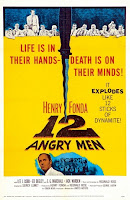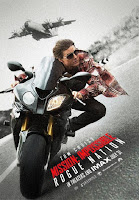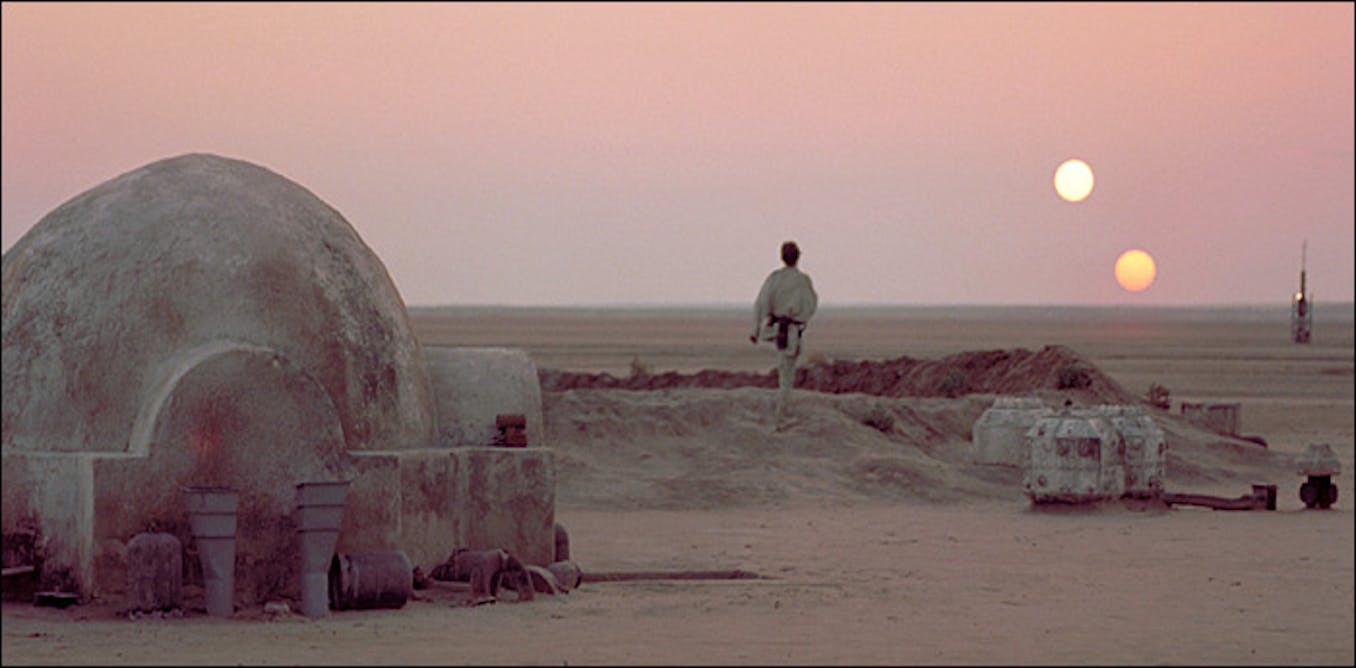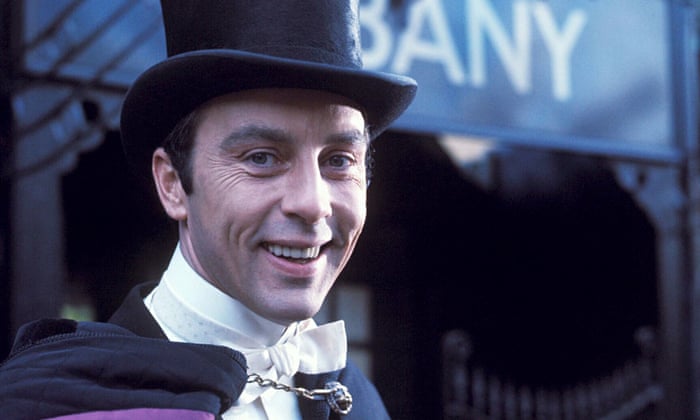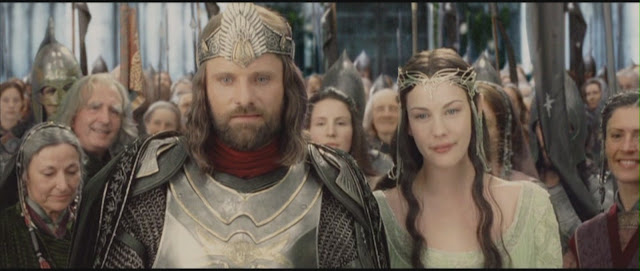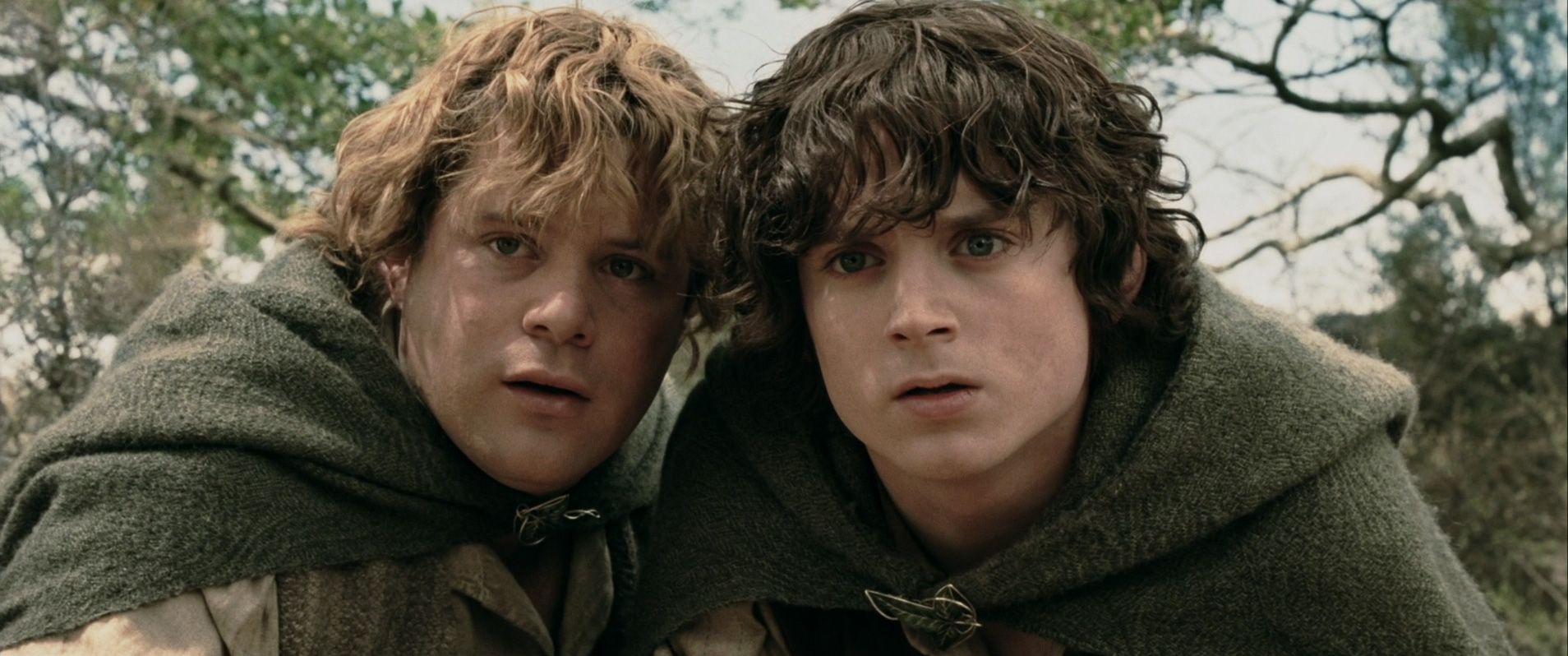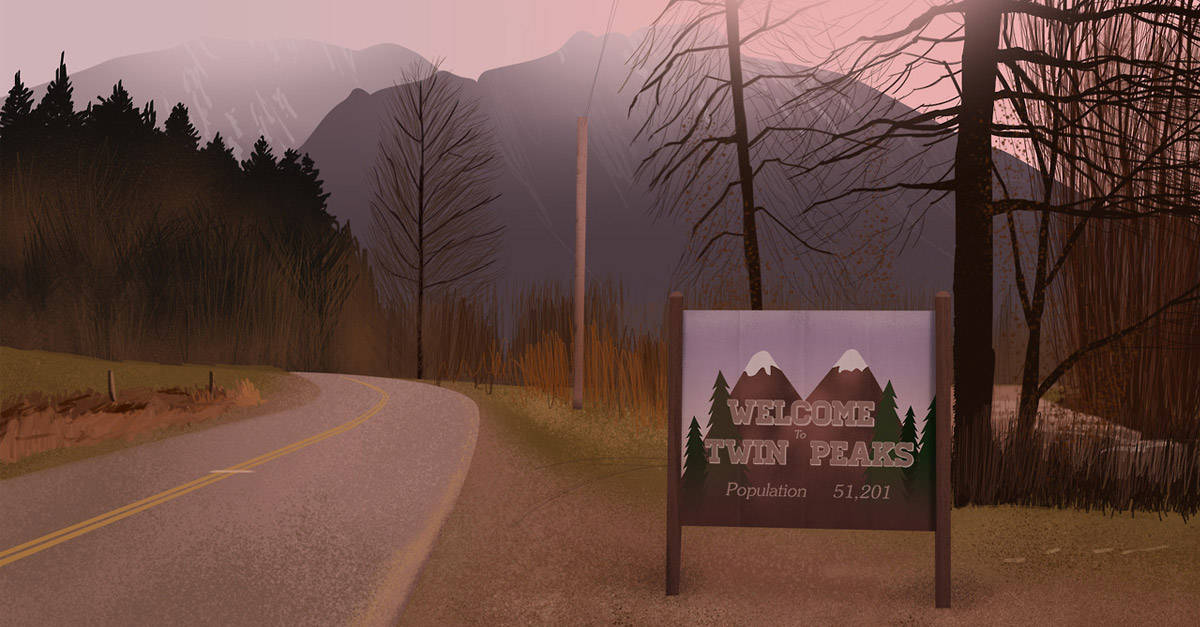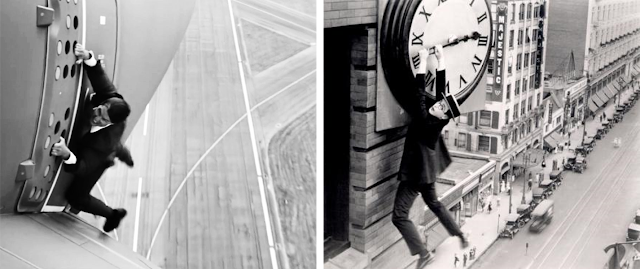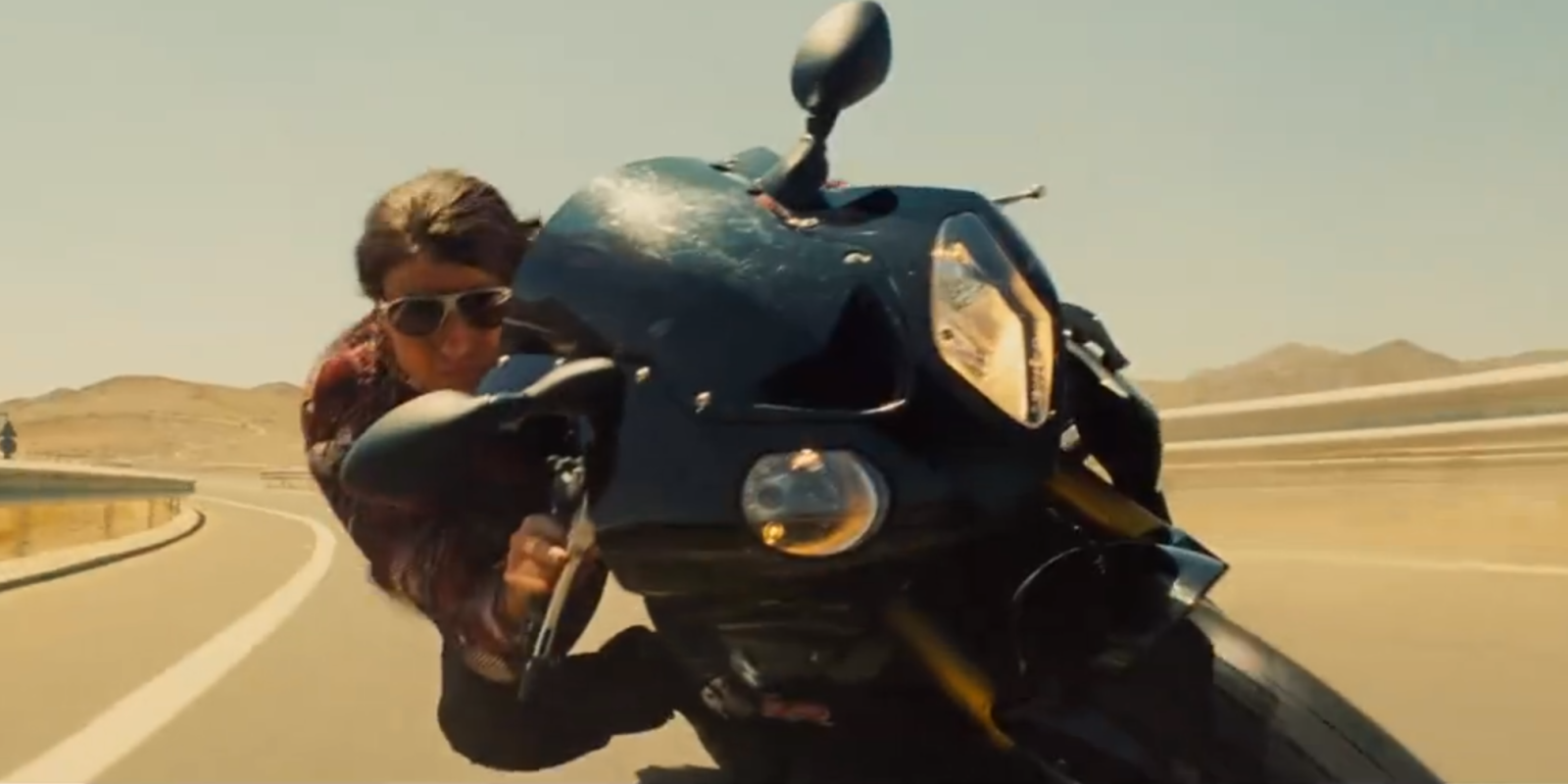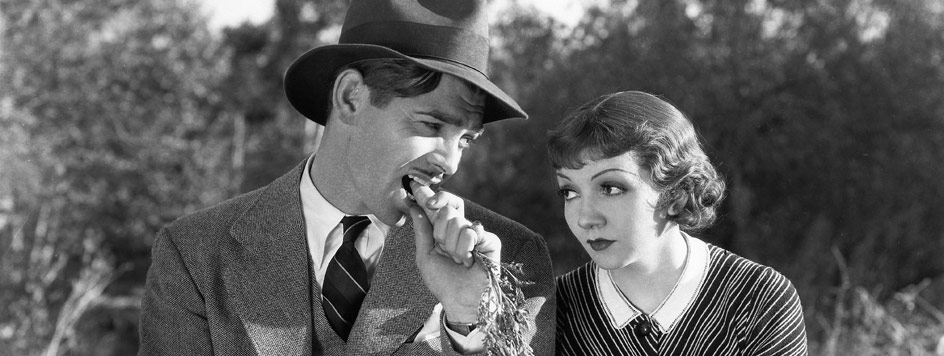2015 Best Movies & TV

Top 15 Movies/Top 5 TV Shows
Of 2015

 The Man Who Shot Liberty Valance feels like somebody's fan fiction come true - drop Jimmy Stewart and John Wayne down in a Western town, and watch them be themselves. But it's far more than just a rote Western. John Ford sets the story on the brink of civilization, as impending statehood threatens both the violence of outlaws and the wild, free ways of independent cowboys. Ultimately, white hats or black hats, both are anathema to civilization.
The Man Who Shot Liberty Valance feels like somebody's fan fiction come true - drop Jimmy Stewart and John Wayne down in a Western town, and watch them be themselves. But it's far more than just a rote Western. John Ford sets the story on the brink of civilization, as impending statehood threatens both the violence of outlaws and the wild, free ways of independent cowboys. Ultimately, white hats or black hats, both are anathema to civilization. If you think you don't like silent movies, you obviously haven't seen The Kid Brother. Made in 1927, it stars the third member of the silent comedy trio: Harold Lloyd (we now remember Keaton and Chaplin, but Lloyd is mostly forgotten.) It's a hilarious, clever, heart-warming little film which has aged incredibly well. Watch here.
If you think you don't like silent movies, you obviously haven't seen The Kid Brother. Made in 1927, it stars the third member of the silent comedy trio: Harold Lloyd (we now remember Keaton and Chaplin, but Lloyd is mostly forgotten.) It's a hilarious, clever, heart-warming little film which has aged incredibly well. Watch here. It Happened One Night was a totally unexpected delight. It's one of the finest road trip romances, and the template for many a romcom thereafter. Clark Gable and Claudette Colbert star as a pair of reluctant fellow travelers, on their way to the Big Apple. He's a failing journalist; she's an heiress on the run. When he discovers her secret, they strike a deal: he'll ensure she gets to New York if she'll let him have the story. Inevitably, once the two begin to overcome their prejudices, love finds a way. Made in 1934, the film has held up incredibly well - notably, it won five Oscars (Best...Picture, Actor, Actress, Director, Writing), and even now has a 98% positive rating at Rotten Tomatoes.
It Happened One Night was a totally unexpected delight. It's one of the finest road trip romances, and the template for many a romcom thereafter. Clark Gable and Claudette Colbert star as a pair of reluctant fellow travelers, on their way to the Big Apple. He's a failing journalist; she's an heiress on the run. When he discovers her secret, they strike a deal: he'll ensure she gets to New York if she'll let him have the story. Inevitably, once the two begin to overcome their prejudices, love finds a way. Made in 1934, the film has held up incredibly well - notably, it won five Oscars (Best...Picture, Actor, Actress, Director, Writing), and even now has a 98% positive rating at Rotten Tomatoes.
12 Angry Men is one of those things that could have been deathly boring. The plot is this: a jury has just finished hearing arguments on a murder case. A young, poor hooligan is on trial for murdering his father. When the jury takes the vote, every man but Henry Fonda condemns the boy. Fonda dissents, pleading a reasonable doubt. In many ways, the rest of the film is a love letter to that legal concept - it's never important if someone else did it, merely whether there's a reasonable doubt. It's fascinating how each character's objections are slowly whittled down by a mixture of effects, and somehow, despite the large cast, everyone makes his small bit memorable.
Mission: Impossible - Rogue Nation was just absurdly fun. I wouldn't go so far as to say it's The Avengers of spy movies (no, I mean, like superhero Avengers, and not the actual Avengers of spy movies), but Rogue Nation may be as perfect as the Mission: Impossible franchise will ever be. Whereas Bond and Bourne lean more towards a Nolan Batman vibe (to continue the superhero similes), this - with its face-masks and "your mission, should you choose to accept it" - is inescapably campy territory. When the franchise tried to be something different (cough, cough, M:I-3) or take its own glamour seriously (cough, cough, M:I-2), it inevitably stumbles. Happily, Rogue Nation strikes just the right balance. Written review - podcast review.
 Back to the Future is everything great about the 80's: it's Ferris Bueller and time travel and skateboards and nostalgia and bad special effects and Huey Lewis and the News. In the film, the reason the story is so self-consciously about life in the 80's is because Marty McFly's an ambassador to the past, showcasing the 80's as the Future. Now, it feels like Back to the Future preserved the period in a time capsule rather than a time machine. Blessedly free of the angst of modern teenager films, it discards the common Disney Parents As Villains trope and attempts to see life from their point of view. Marty's mom and dad are almost more important than he is to the story. This was great.
Back to the Future is everything great about the 80's: it's Ferris Bueller and time travel and skateboards and nostalgia and bad special effects and Huey Lewis and the News. In the film, the reason the story is so self-consciously about life in the 80's is because Marty McFly's an ambassador to the past, showcasing the 80's as the Future. Now, it feels like Back to the Future preserved the period in a time capsule rather than a time machine. Blessedly free of the angst of modern teenager films, it discards the common Disney Parents As Villains trope and attempts to see life from their point of view. Marty's mom and dad are almost more important than he is to the story. This was great. Mad Max: Fury Road is an insane movie. It's about a very long car chase. There are war-painted jihadis there who clean their teeth with chrome and want to go to Valhalla and women who have decided to dump the harem and hit the road. There is a guy with a flame-throwing electric guitar. Charlize Theron is the star. Around all the craziness, I'm not entirely sure this is a good movie, but I feel the peer pressure and am putting this here instead of The Shaun the Sheep Movie.
Mad Max: Fury Road is an insane movie. It's about a very long car chase. There are war-painted jihadis there who clean their teeth with chrome and want to go to Valhalla and women who have decided to dump the harem and hit the road. There is a guy with a flame-throwing electric guitar. Charlize Theron is the star. Around all the craziness, I'm not entirely sure this is a good movie, but I feel the peer pressure and am putting this here instead of The Shaun the Sheep Movie. 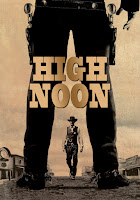 High Noon is a cookie-cutter Western, but with a ticking clock to rival The Bourne Identity's. It clocks in at 84 minutes, and takes place in (almost) real time, as death approaches, as inevitable, as inescapable as the creeping minutes. This film is seen by many as a metaphor for McCarthyism. Seeing it now, without that context, I think mostly of modern menaces on free speech and exercise of principle. The genius of the film is that it does not confine itself to particular political circumstances - and its story remains fresh today. My review.
High Noon is a cookie-cutter Western, but with a ticking clock to rival The Bourne Identity's. It clocks in at 84 minutes, and takes place in (almost) real time, as death approaches, as inevitable, as inescapable as the creeping minutes. This film is seen by many as a metaphor for McCarthyism. Seeing it now, without that context, I think mostly of modern menaces on free speech and exercise of principle. The genius of the film is that it does not confine itself to particular political circumstances - and its story remains fresh today. My review.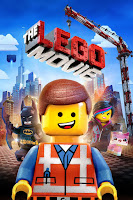 The Lego Movie is simply one of the most creative things I've seen in ages. Not only does it take place in a sumptuously-designed, incredibly complex CGI world, but it's packed with intelligent political and economic commentary. (I find it just as difficult to believe as anyone else.) And Liam Neeson plays an Irish Lego cop who's worth the price of admission.
The Lego Movie is simply one of the most creative things I've seen in ages. Not only does it take place in a sumptuously-designed, incredibly complex CGI world, but it's packed with intelligent political and economic commentary. (I find it just as difficult to believe as anyone else.) And Liam Neeson plays an Irish Lego cop who's worth the price of admission. Amelie isn't for everyone. I'm surprised, given certain parts of it (that's a warning to remember the rating), that it's even for me, but the whimsy, stylishness, and pure charm of the film won me over. Much of this is down to Audrey Tatou, a spark-eyed, petite beauty whose parents coddled her so much as to lead to extreme introversion. But Amelie's rich imaginative life still flourishes, until eventually it spills over into real life. That's when the fun begins.
Amelie isn't for everyone. I'm surprised, given certain parts of it (that's a warning to remember the rating), that it's even for me, but the whimsy, stylishness, and pure charm of the film won me over. Much of this is down to Audrey Tatou, a spark-eyed, petite beauty whose parents coddled her so much as to lead to extreme introversion. But Amelie's rich imaginative life still flourishes, until eventually it spills over into real life. That's when the fun begins.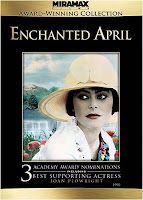 Enchanted April is a very gentle, intelligent movie about four women. They're exhausted with their lives, exhausted with England, exhausted with men. One of the four, frazzled and middle-aged but with a gift for prophecy, decides to go to Italy on holiday. It's a crazy idea, completely beyond her means, but they band together and decide to attempt it. You won't believe what happens next...
Enchanted April is a very gentle, intelligent movie about four women. They're exhausted with their lives, exhausted with England, exhausted with men. One of the four, frazzled and middle-aged but with a gift for prophecy, decides to go to Italy on holiday. It's a crazy idea, completely beyond her means, but they band together and decide to attempt it. You won't believe what happens next...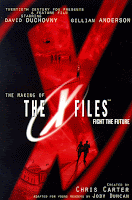 The first X-Files movie is much maligned for refusing to give a definitive answer to the TV show's alien arc, but leaving that aside, this is still a tremendously fun action adventure pastiche film. Mulder and Scully chase aliens around and talk to mysterious government men in dark alleys and exploit that incredible chemistry of theirs, all with an enormous budget. Pure popcorn entertainment, and the end, for better or worse, of the good part of the mytharc.
The first X-Files movie is much maligned for refusing to give a definitive answer to the TV show's alien arc, but leaving that aside, this is still a tremendously fun action adventure pastiche film. Mulder and Scully chase aliens around and talk to mysterious government men in dark alleys and exploit that incredible chemistry of theirs, all with an enormous budget. Pure popcorn entertainment, and the end, for better or worse, of the good part of the mytharc.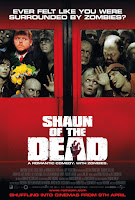
Mission: Impossible introduced me to Simon Pegg, and I proceed to movie-stalk him throughout the rest of his hilarious career. While I enjoyed Hot Fuzz and The World's End, Shaun of the Dead has to be my favorite of the Blood and Ice Cream trilogy. Shaun is a lazy slacker, shackled to his layabout mate, Ed. Essentially, they are zombies - a fact the film makes much of in a series of visual puns. When the real zombies appear, Shaun has to get his life together to save - well, not the world, but at least the nearest pub.
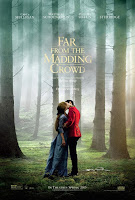 Far From the Madding Crowd is not a perfect movie, but it's gloriously shot, beautifully scored, paced reasonably well and has an excellent cast. Its sense of honor and loyalty manages to undercut the more saccharine aspects of the plot, and overall I found it a satisfying, old-fashioned romance.
Far From the Madding Crowd is not a perfect movie, but it's gloriously shot, beautifully scored, paced reasonably well and has an excellent cast. Its sense of honor and loyalty manages to undercut the more saccharine aspects of the plot, and overall I found it a satisfying, old-fashioned romance.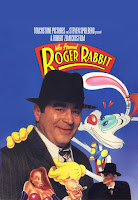 It speaks to Bob Hoskins' genius that he was just as perfect playing Micawber as he was an ill-tempered gumshoe, Eddie Valiant, in Who Framed Roger Rabbit. Even more surprising - that he can make you take the source of Eddie's ill-temper seriously. A cartoon killed his brother. "Toons," he growls bitterly - and you can tell he means it.
It speaks to Bob Hoskins' genius that he was just as perfect playing Micawber as he was an ill-tempered gumshoe, Eddie Valiant, in Who Framed Roger Rabbit. Even more surprising - that he can make you take the source of Eddie's ill-temper seriously. A cartoon killed his brother. "Toons," he growls bitterly - and you can tell he means it.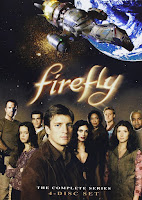 I'd heard about Firefly for ages. It gained legendary status following its martyrdom to the coffers of evil Fox executives, merely halfway through its first series. But let's be fair: it really is good. It combines the two great American genres - space operas and westerns - with a bit of Joss Whedon flair, in a thoroughly original universe. And this is serious world-building here, of a quality rare in scifi or fantasy these days. On top of that, it's headed up by the hilarious Nathan Fillion. While the rest of the cast is a little uneven (British casts have me spoiled), in classic Whedonesque style, they are all quickly established and form an interesting, varied, unpredictable team. Watch the first four episodes free on Hulu.
I'd heard about Firefly for ages. It gained legendary status following its martyrdom to the coffers of evil Fox executives, merely halfway through its first series. But let's be fair: it really is good. It combines the two great American genres - space operas and westerns - with a bit of Joss Whedon flair, in a thoroughly original universe. And this is serious world-building here, of a quality rare in scifi or fantasy these days. On top of that, it's headed up by the hilarious Nathan Fillion. While the rest of the cast is a little uneven (British casts have me spoiled), in classic Whedonesque style, they are all quickly established and form an interesting, varied, unpredictable team. Watch the first four episodes free on Hulu. I mean to write more about it in the future, but And Then There Were None was one of the most powerful pieces of television I saw in 2015. It's one of Agatha Christie's most famous novels, and for good reason. This is a superb adaptation with a terrific cast and haunting cinematography.
I mean to write more about it in the future, but And Then There Were None was one of the most powerful pieces of television I saw in 2015. It's one of Agatha Christie's most famous novels, and for good reason. This is a superb adaptation with a terrific cast and haunting cinematography. Agent Carter is the invasion of the British miniseries to American TV: Hayley Atwell commands a small cast in this period drama cum superhero flick. The show varied in quality throughout its 8-week run, but was overall a very solid addition to my weekly line-up and mostly lived up to my initial observations, though it was too bad that the show thought it had to weaken its heroes to make way for a heroine. Is it worth another season, even so? Definitely. I'm looking forward to it.
Agent Carter is the invasion of the British miniseries to American TV: Hayley Atwell commands a small cast in this period drama cum superhero flick. The show varied in quality throughout its 8-week run, but was overall a very solid addition to my weekly line-up and mostly lived up to my initial observations, though it was too bad that the show thought it had to weaken its heroes to make way for a heroine. Is it worth another season, even so? Definitely. I'm looking forward to it.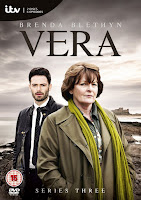 Vera follows in the tradition of the deceptively-simple-old-lady-detective genre. Unlike Miss Marple or Jessica Fletcher, Vera Stanhope is an actual police officer, and not even an underdog maverick like many of her male equivalents (Morse, Frost, Foyle, to some extent Gently), but a hard-drinking, short-tempered D.C.I. with no apparent boss. She provides a sympathetic ear to witnesses (unless she suspects them of lying, in which case it's war), but her colleagues must deal with her acerbic perfectionism. Thankfully, her incredibly cute sidekick, Joe Ashworth, is the world's most patient sergeant. They're easily one of my new favorite duos. Watch here.
Vera follows in the tradition of the deceptively-simple-old-lady-detective genre. Unlike Miss Marple or Jessica Fletcher, Vera Stanhope is an actual police officer, and not even an underdog maverick like many of her male equivalents (Morse, Frost, Foyle, to some extent Gently), but a hard-drinking, short-tempered D.C.I. with no apparent boss. She provides a sympathetic ear to witnesses (unless she suspects them of lying, in which case it's war), but her colleagues must deal with her acerbic perfectionism. Thankfully, her incredibly cute sidekick, Joe Ashworth, is the world's most patient sergeant. They're easily one of my new favorite duos. Watch here. Jonathan Strange & Mr. Norrell was simply one of the best things on TV in ages. After the disillusionment of watching The Hobbit, Gracepoint, and Broadchurch 2.0 one after another, I had nearly lost faith in anything remaining true to the source material. Jonathan Strange & Mr. Norrell resurrected my faith, and also quite a few people, in the course of its seven-week run. Magic, zombies, Jane Austen etiquette, scholarly debates, wigs, The Duke of Wellington, Faerie. It wasn't perfect, but it was extraordinary. My reviews.
Jonathan Strange & Mr. Norrell was simply one of the best things on TV in ages. After the disillusionment of watching The Hobbit, Gracepoint, and Broadchurch 2.0 one after another, I had nearly lost faith in anything remaining true to the source material. Jonathan Strange & Mr. Norrell resurrected my faith, and also quite a few people, in the course of its seven-week run. Magic, zombies, Jane Austen etiquette, scholarly debates, wigs, The Duke of Wellington, Faerie. It wasn't perfect, but it was extraordinary. My reviews. Twin Peaks may be too in love with its own weirdness sometimes, but I'm willing to forgive it, because there's so much genius in there as well. The story is simple: teenager Laura Palmer's body is discovered on the beach of small town Twin Peaks. The death - a murder, as it turns out - sends ripples throughout the community, which consists of a passel of eccentric individuals. There's the deputy who cries at every crime scene. The verbose, grandiloquent father who can't connect with his rebellious son. The two crooked businessmen named Ben and Jerry. The illogically optimistic F.B.I. agent - Dale Cooper - who comes in to investigate. The Log Lady. Throw all of this into a blender with intent to parody soap operas and you get Twin Peaks. My review.
Twin Peaks may be too in love with its own weirdness sometimes, but I'm willing to forgive it, because there's so much genius in there as well. The story is simple: teenager Laura Palmer's body is discovered on the beach of small town Twin Peaks. The death - a murder, as it turns out - sends ripples throughout the community, which consists of a passel of eccentric individuals. There's the deputy who cries at every crime scene. The verbose, grandiloquent father who can't connect with his rebellious son. The two crooked businessmen named Ben and Jerry. The illogically optimistic F.B.I. agent - Dale Cooper - who comes in to investigate. The Log Lady. Throw all of this into a blender with intent to parody soap operas and you get Twin Peaks. My review.
I was hesitant to watch Poldark, since most of the internet considered its main interest to be Aidan Turner's incredible six-pack abs. But while, admittedly, there's a certain appeal to Aidan Turner's abs, the show is a lot more than that. Turner plays Ross Poldark, a young veteran returned from the war of Independence only to find his family estate in ruin. A go-getter, he decides to reopen his father's mines, employ the locals, and generally be a gallant hero. As is the way of things, a love triangle soon develops between Ross, his old lover, and a new third party, but it's treated with more nuance and unpredictability than usual, and by the finale, the story has gathered some real poignancy. More odd: the show is about moral, old-fashioned people trying to make the right decisions. That's compelling.
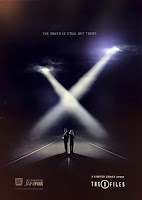 I'm not normally a huge scifi fan, but The X-Files is more a mishmash of spy thriller, cop drama, and paranormal investigation, a more intriguing mix. I managed to miss it the first time around, because I was busy with Kindergarten, but what with the upcoming reunion series, I figured I needed to do my research. What's the verdict? Well, the truth is, it's out there. It's fun and sometimes melodramatic, sometimes a little moving, and the premise - two FBI agents investigating government alien cover-ups or whatever weird stuff the writers throw at them - is broad enough to allow half a dozen different genres episodes to spice up the the more serious stuff. And yeah, David Duchovny and Gillian Anderson have a lovely, gentle chemistry which amounts to one of the best TV romantic friendships. My review.
I'm not normally a huge scifi fan, but The X-Files is more a mishmash of spy thriller, cop drama, and paranormal investigation, a more intriguing mix. I managed to miss it the first time around, because I was busy with Kindergarten, but what with the upcoming reunion series, I figured I needed to do my research. What's the verdict? Well, the truth is, it's out there. It's fun and sometimes melodramatic, sometimes a little moving, and the premise - two FBI agents investigating government alien cover-ups or whatever weird stuff the writers throw at them - is broad enough to allow half a dozen different genres episodes to spice up the the more serious stuff. And yeah, David Duchovny and Gillian Anderson have a lovely, gentle chemistry which amounts to one of the best TV romantic friendships. My review. Agents of S.H.I.E.L.D. had a bumpy start back in 2013, but its second season made a dramatic turnaround to become one of the best shows on TV. Now, after its third mid-season finale, it's eliminated almost all of its original problems. Chloe Bennett completely came into her own as Daisy Johnson, a.k.a. Quake. The FitzSimmons cutie-pie team has been given some real stakes, and Simmons carried the best episode of the show thus far on her own: 4722. Ward was definitely more dynamic as a villain, and even Lincoln became a bit more complicated. From Lash to the ATCU to Gideon Malick, there are a variety of new threats that keep the main characters hopping. And what a finale! The show is very gutsy and committed to serious plot development.
Agents of S.H.I.E.L.D. had a bumpy start back in 2013, but its second season made a dramatic turnaround to become one of the best shows on TV. Now, after its third mid-season finale, it's eliminated almost all of its original problems. Chloe Bennett completely came into her own as Daisy Johnson, a.k.a. Quake. The FitzSimmons cutie-pie team has been given some real stakes, and Simmons carried the best episode of the show thus far on her own: 4722. Ward was definitely more dynamic as a villain, and even Lincoln became a bit more complicated. From Lash to the ATCU to Gideon Malick, there are a variety of new threats that keep the main characters hopping. And what a finale! The show is very gutsy and committed to serious plot development.  Miss Fisher's Murder Mysteries has been hovering around on the edge of my detective viewing for some time. It's Australian, but very much in the same mold as the Golden Age soft-boiled mystery. That's not to say it isn't without its modern sensibilities - the Honorable Phryne Fisher is happily promiscuous and uninhibited by any of the vestiges of Victorianism hanging around the rest of the cast. She's glamorous, impeccably dressed, and incredibly fun to watch.
Miss Fisher's Murder Mysteries has been hovering around on the edge of my detective viewing for some time. It's Australian, but very much in the same mold as the Golden Age soft-boiled mystery. That's not to say it isn't without its modern sensibilities - the Honorable Phryne Fisher is happily promiscuous and uninhibited by any of the vestiges of Victorianism hanging around the rest of the cast. She's glamorous, impeccably dressed, and incredibly fun to watch. Her co-stars are sufficiently old-fashioned to ground her in noir-ish 1920s Melbourne, particularly the marvelously dour Nathan Page as Inspector Jack Robinson, Phryne's companion-cum-love-interest. Read more.
Hannah Long
The Pilgrim's Podcast
en-usJanuary 02, 2016

